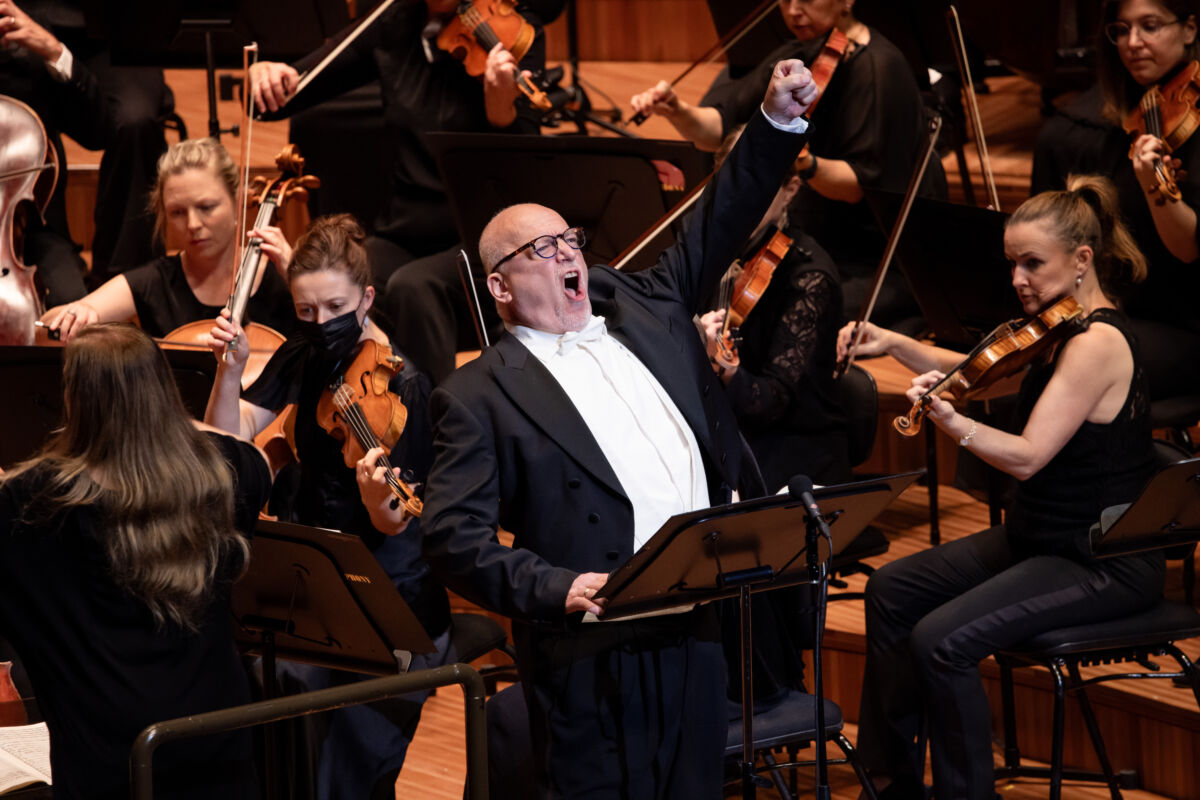The audience rose as one at the conclusion of last night’s Das Rheingold, and for good reason. It was stupendous.
Chief Conductor Simone Young promised a lot when she undertook to deliver Wagner’s Ring Cycle in Sydney over four years.
Of course, she is no stranger to the tetralogy overseas, but it’s been three decades since the Sydney Symphony Orchestra last tackled it.
It’s also an ambition that has foiled our national opera company time and time again, with the last fully staged Ring presented in this city over a century ago by a UK touring company.

Falk Struckmann as Alberich in SSO’s Das Rheingold, conducted by Simone Young. Photo © Daniel Boud
Not surprisingly, a palpable sense of anticipation filled the air in the Concert Hall of the Sydney Opera House last night, but would the expectations of those assembled be met?
The standing ovation at the end of the non-stop, two-and-a-half-hour concert suggests they were. The time simply flew by, and anyone keen to share in this once-in-a-lifetime experience should immediately snap up the handful of tickets remaining for tomorrow evening’s second performance.
For this writer, brought up on the Rings of...











Comments
Log in to join the conversation.